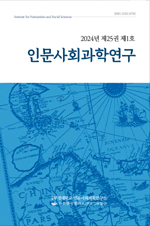- 영문명
- Restructuring and Prospects of Christian Theological Education in China
- 발행기관
- 부경대학교 인문사회과학연구소
- 저자명
- 유미경(Mikueng Yoo)
- 간행물 정보
- 『인문사회과학연구』제26권 제3호, 31~56쪽, 전체 26쪽
- 주제분류
- 사회과학 > 사회과학일반
- 파일형태
- 발행일자
- 2025.08.31
5,920원
구매일시로부터 72시간 이내에 다운로드 가능합니다.
이 학술논문 정보는 (주)교보문고와 각 발행기관 사이에 저작물 이용 계약이 체결된 것으로, 교보문고를 통해 제공되고 있습니다.

국문 초록
본 연구는 시진핑 정부의 ‘중국문화 소프트파워’ 전략이 중국기독교 신학교육에 미친 영향을 분석한다. 시진핑 정부는 2013년 출범과 동시에 ‘사회주의핵심가치관’과 ‘중화의 우수한 전통문화’를 결합한 국가 문화전략을 추진하여 대외적으로 국격 제고를, 대내적으로 국민 통합과 이념 강화를 도모하였다. 이러한 전략은 ‘종교중국화’ 정책을 통해 종교 영역에 직접 적용되었으며, 특히 서구와의 역사적 연계와 정치적 민감성이 큰 기독교에 대해서는 통제 강화와 교리 수정 요구가 두드러졌다. 종교중국화 정책과 ‘교과과정 사상정치교육(课程思政)’ 전략은 중국기독교 신학교육의 구조와 운영 전반에 근본적인 변화를 초래했다. 이를 규명하기 위해 중국기독교 최고 교육기관인 진링(金陵)협화신학원의 1996-1999년과 2019-2020년 교과과정을 분석 대상으로 삼아, 학년별·학기별 과목 구성, 학점·교시 체계, 교육내용 변화를 비교하였다.
분석 결과, 첫째, 종교교육은 성경 언어와 세부 성경 과목, 신학 전공군의 전문화를 통해 학술성과 체계성이 강화되었으며, 예배·상담·행정 등 실무역량 교육이 확충되었다. 둘째, 정치교육은 역사·철학 중심의 교양 성격에서 애국주의교육, 마오쩌둥 사상, 사회주의핵심가치관, 시진핑 신시대사상, 종교정책과 법규 등 정치적·이념적 과목군으로 확대·정규화되었다. 나아가 종교 과목을 포함한 교과과정 전반에 ‘시진핑 신시대사상’의 원칙을 제도적으로 구조화함으로써 이념교육 체계가 국가 주도로 일원화·체계화되었다. 셋째, 이러한 변화로 신학교는 종교 전문 교육기관으로서의 정체성을 유지하면서도, 사회주의핵심가치관에 부합하는 체제 조화적 종교지도자 양성 기능을 강화하였다. 본 연구는 중국기독교 신학교육의 정치적·이념적 재편과 재구조화 양상을 실증적으로 제시함으로써, 향후 신학교육의 자율성과 종교의 공공성 보존, 국가 통제와 종교 자유의 관계 설정을 논의하는 데 기초 자료를 제공한다.
영문 초록
This study examines the impact of the Xi Jinping administration’s “Chinese Cultural Soft Power” strategy on theological education in Chinese Christianity. Integrating “Core Socialist Values” with “Excellent Traditional Chinese Culture,” this policy seeks to enhance national prestige abroad and promote ideological consolidation at home. Applied through the “Sinicization of Religion,” it has increased control over Christianity, given its Western ties and political sensitivity. The Sinicization policy and “Curriculum-Based Ideological and Political Education” (课程思政) have brought significant structural changes to theological education. This study analyzes the curricula of Nanjing Union Theological Seminary—the leading theological institution in China—for 1996-1999 and 2019-2020, comparing course composition, credit/hour systems, and content. Findings show: (1) religious education was deepened through specialized biblical languages, detailed biblical studies, and theological majors, alongside expanded worship, counseling, and administration training; (2) political education has shifted from a liberal arts focus on history and philosophy to formalized ideological subjects such as patriotic education, Mao Zedong Thought, Xi Jinping Thought, and religious policy. By embedding Xi Jinping Thought across all courses, including religion, the state has unified and systematized the ideological education system; and (3) seminaries have transformed into training grounds for politically compliant clergy. This study provides an empirical basis for discussions on preserving theological education’s autonomy, safeguarding religion’s public role, and defining the boundaries between state control and religious freedom.
목차
Ⅰ. 서론
Ⅱ. 시진핑 정부의 문화전략과 중국기독교신학교육 재구조화의 배경
Ⅲ. 중국기독교 신학교육의 재구조화
Ⅳ. 결론: 중국기독교 신학교육의 전망
참고문헌
키워드
해당간행물 수록 논문
- 해양교육네트워크로 보는 해양교육 현황과 과제
- 관우, 관제, 관푸치노 - 가치관 전환시대의 고전읽기
- 『표준국어대사전』기반 독일어계 외래어의 형태 변화와 품사 분포에 대한 계량적 분석
- 산업재해예방의 정책수단 실효성
- 철학교육에서의 도덕 판단 구성과 반성적 평형: 직관의 역할 재검토
- 중국기독교 신학교육의 재구조화와 전망
- 토마스 아퀴나스의 인간론에 근거한 죽음 이후의 인간의 상태연구
- 미디어 콘텐츠를 활용한 중국어 “幫+NP+VP” 구문의 실제적 연구
- 에도시대 무사(武士)의 부업(副業)과 장인(匠人)정신의 상관관계 연구(2) - 고케닌(御家人)의 부업을 중심으로
- 『취분운략(聚分韻略)』제본(諸本)에 걸친 경섭(梗攝)의 자음형(字音形)에 대하여
- 식민지 조선의 ‘대극장’ 건설론 - 1930년대 재경성 일본인들의 비전과 미완의 시도
- 한국어와 키르기스어의 보조동사 인식 및 사용 양상 - ‘-어 버리다’와 ‘-어 보다’를 중심으로
- 한국·일본·베트남한자음 자음형의 창출요인에 관한 연구 - 최적성이론을 적용한 타국 한자음과의 비교를 통하여(齒上音)
- 산업별 고용 중기 전망의 예측오차 영향요인 분석
- 정서적 긴장과 신뢰: 신뢰의 부정적 효과와 역설
- 2025년 마크롱 대통령 담화에 나타난 프랑스와 아프리카의 관계 변화 양상 연구 - 서아프리카를 중심으로
- 2025년 한일 첫 정상회담 뉴스 영상에 대한 한·일 댓글 분석연구 - 정당화 전략을 중심으로
- 부산 시민의 내향적 국제화 인식 개선 방안: 국제화 인식 설문조사를 바탕으로
- 우레이(Wu Lei) 읽기: 한국 미디어가 보도/재현하는 양상과 방식의 한국적 의미
- 뉴스 기사를 통한 미국 다문화 리터러시 주제 구조 탐색: BERTopic 기반 분석
- 조직정치지각이 직무스트레스, 직무만족, 조직몰입 및 혁신행동에 미치는 영향: 재중 한국기업의 중국 현지 종업원을 대상으로
- 대학생의 프로티언 경력태도와 진로준비행동 간의 관계에서 진로역량 및 진로태도성숙의 매개효과
- 어머니의 양육 스트레스와 유아 자기조절력의 관계에서 어머니 정서표현성의 병렬이중매개효과
- 활자 노출 빈도와 단어 재인 시 음운 활성화 강화와의 관계
- 외국인 유학생의 교육관광 만족요인 분석에 관한 연구 - A 대학교 사례를 중심으로
참고문헌
관련논문
사회과학 > 사회과학일반분야 BEST
- AI와 디지털 문화 산업의 결합에서 저작권 및 윤리적 규범 준수의 필요성 연구
- 인공지능(AI)과 윤리
- 종합병원 간호사의 환자안전문화인식과 조직의사소통만족이 안전간호활동에 미치는 영향
사회과학 > 사회과학일반분야 NEW
- AI 기반 포토리얼리스틱 비디오를 활용한 전문 간호사 고위험 약물 교육콘텐츠 - 개발 및 타당성 평가
- ATP 측정을 활용한 어린이집 급식 위생 관리의 객관적 평가 지표 도입 필요성
- GIS DB 구축 용역에서의 안전보건관리비와 용역기간 적정성에 관한 실증적 분석
최근 이용한 논문
교보eBook 첫 방문을 환영 합니다!

신규가입 혜택 지급이 완료 되었습니다.
바로 사용 가능한 교보e캐시 1,000원 (유효기간 7일)
지금 바로 교보eBook의 다양한 콘텐츠를 이용해 보세요!



